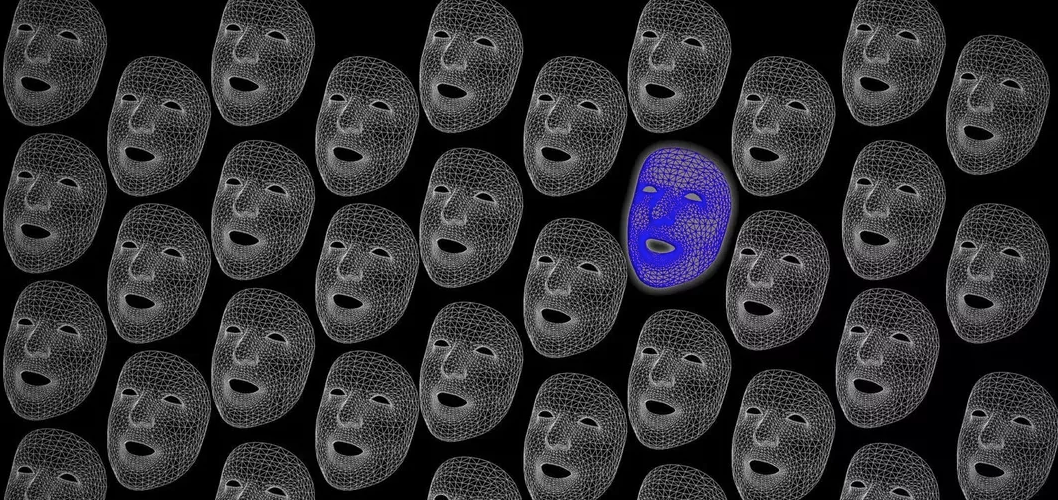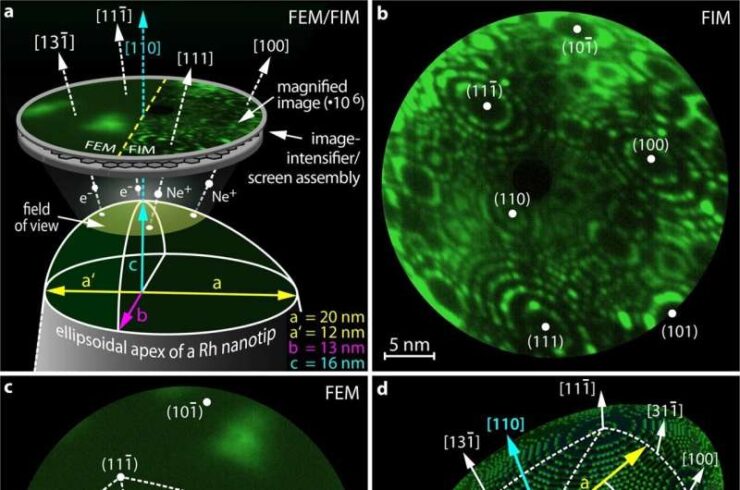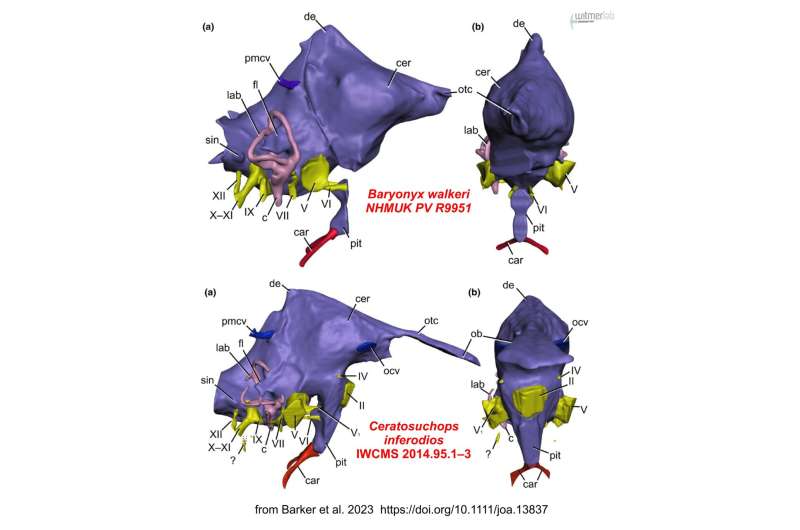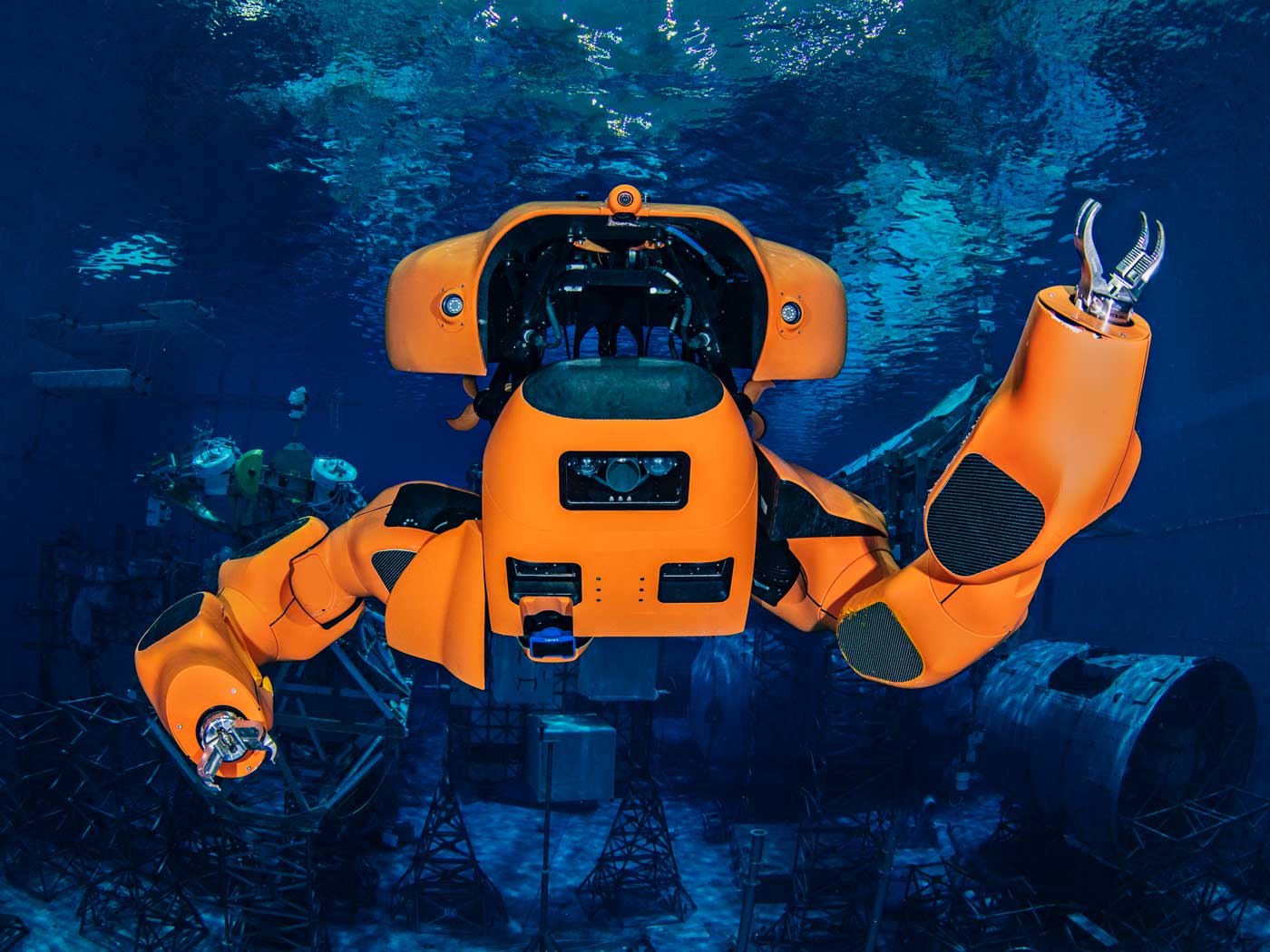TSS EXCLUSIVE: Clear-Cut Surveillance? Emerging Facial Recognition Software Clearview AI Raises Concerns
by Vittorio Bollo
If, as the saying goes, the eyes are the windows to the soul, then the face is the window to the modern surveillance of people. Today, facial recognition is one of the leading methods of biometric recognition and is a rapidly-growing biometric technology. It is projected that it will be a $7.7 billion industry by 2022.
如果说眼睛是心灵的窗户,那么脸就是现代人类监视的窗户;人脸识别是当今生物特征识别的主要方法之一,是以项发展迅速的生物特征识别技术;预计到2022年,这将成为-一个价值77亿美元的产业。
One of the leading companies in the facial recognition technology game, Clearview AI, has come under immense scrutiny in recent months. What is this technology that is being aggressively promoted by Clearview AI, particularly in the law enforcement and counter-terrorism fields? To what extent are the concerns about this fast-emerging technology valid? What is the consensus, both for and against, regarding facial recognition generally, specifically in the legal/legislative domain?
最近几个月,面部识别技术领域的领军企业之一Clearview AI受到了密切关注; Clearview AI正在大力推广的技术是什么,尤其是在执法和反恐领域?对这种快速发展的技术的担忧在多大程度上是正确的?在一般情况下,特别是在法律/立法领域,对于面部识别的赞成和反对的共识是什么?
What Is Clearview AI?
什么是Clearview AI?
Clearview AI is the brainchild of Hoan Ton-That, an Australian-born techie of Vietnamese descent who moved to San Francisco at the age of 19. He launched the Manhattan-based start-up Clearview AI in 2017, together with Richard Schwartz, a former adviser to Rudy Giuliani when the latter was the Republican mayor of New York City. Financial backing was provided by conservative venture capitalist and early Facebook investor, Peter Thiel.
Clearview AI是Hoan ton的创意,Hoan ton是-位出生于澳大利亚的越南裔技术人员,19岁时移居旧金山; 2017年,他与鲁迪.朱利安尼(Rudy Giuliani)的前顾问理查德.施瓦茨(Richard Schwartz)共同创办了位于曼哈顿的初创企业ClearviewAl,保守派风险投资家、Facebook的早期投资者彼得.泰尔
(Peter Thiel)提供了资金支持。
Clearview is indeed groundbreaking, as explained in a recent exposé about the company by The New York Times: namely, a picture can be taken by a person, say, walking in the street, uploaded via the software, and all the publicly available photos of that person, including links to where said photos appeared online, will be made instantly available. No other facial recognition technology can claim to do the same – not for now, at least. Little wonder that the article was titled, “The Secretive Company That Might End Privacy as We Know It.”
去年Clearview确实是开创性的,在最近的一次公开解释了公司由纽约时报:即一幅可以由一个人、比如说,一个走在大街上的人,通过软件.上传和所有公开可用的那个人的照片,包括链接说照片出现在网上,将立即可用;没有其他面部识别技术可以做到这一点– 至少目前还没有,难怪这篇文章的标题是”我们所知的可能终结隐私的秘密公司”。
How does Clearview achieve this? Via its database of more than three billion images that it’s said to have scraped from Facebook, YouTube, Instagram, Twitter, and other websites. It should be noted that many of these companies prohibit scraping from their sites. The New York Times reported that Twitter had in fact informed Clearview (jn the form of a cease and desist letter) that its facial recognition app was in violation of Twitter policies. Clearview further received a cease-and-desist letter from the attorney general of New Jersey.
Clearview是如何实现这一点的?通过它从 Facebook、YouTube 、Instagram. Twitter 和其他网站上搜集的30多亿张图片的数据库;但值得注意的是,许多这样的公司禁止从他们的网站上抓取信息,《纽约时报》报道称,Twitter实际上已经通知Clearview(以停止信的形式),其面部识别应用程序违反了Twitter的政策; Clearview还收到了新泽西州司法部长的勒令停止函。
Not surprisingly, various federal and state authorities, particularly those in law enforcement, have expressed great interest in what Clearview can achieve in the investigation and prosecution of everything from identity theft and credit card fraud, to murder and child sexual abuse.The New York Times has estimated that more than 600 law enforcement agencies have been secretly using the technology since early 2019, which Clearview declined to list when so asked.
不足为奇的是,许多联邦和州当局,尤其是执法部门,都对Clearview在调查和起诉从身份盗窃和信用卡欺诈到谋杀和儿童性侵犯等各种案件方面所能取得的成果表示了极大的兴趣;《纽约时报》(The New York Times)估计,自2019年初以来,已有600多家执法机构在秘密使用这种技术。
Clearview proclaims a simple yet bold mission statement on its website: “Clearview is a new research tool used by law enforcement agencies to identify perpetrators and victims of crimes.” Its claims are even bolder: “Clearview’s technology has helped law enforcement track down hundreds of at-large criminals, including pedophiles, terrorists and sex traffickers. It is also used to help exonerate the innocent and identify the victims of crimes including child sex abuse and financial fraud.”
Clearview在其网站.上发布了-份简单而大胆的任务声明:”Clearview是执法机构用来识别罪犯和受害者的一种新的研究工具,它的声明甚至更加大胆:”Clearview的技术已经帮助执法部门追踪了数百名在逃罪犯,包括恋童癖者、恐怖分子和性贩子”,它还被用来帮助无辜的人洗脱罪名,确认包括儿童性虐待和金融欺诈在内的犯罪行为的受害者。
The Clearview website includes a glowing testimonial by an (unnamed) “Detective Constable in Canada’s Sex Crimes Unit,” who states, “Clearview is hands-down the best thing that has happened to victim identification in the last 10 years. Within a week and a half of using Clearview, [we] made eight identifications of either victims or offenders through the use of this new tool”.
Clearview网站上有一位(未透露姓名)”加拿大性犯罪部门的康斯特布尔探长”热情洋溢的证言,他说:”Clearview无疑是过去10年来受害者身份识别方面发生的最好的事情;在使用Clearview的-一周半内,(我们)通过使用这个新工具识别了8个受害者或罪犯。
What Are the Concerns Regarding Clearview’s Technology?
Clearview的技术有哪些风险?
The app’s ability to undermine privacy is potentially immense. For example, it’s believed that the app’s underlying programming language could be paired with augmented reality (AR) glasses, thereby allowing a wearer (for example, an anti-riot police officer at a political rally) to potentially identify every person they saw. The information revealed would be highly personal, including what a person’s interests might be, what they have seen and bought online, and even where they live. Many critics, including the San Francisco Chronicle, the American Civil Liberties Union (ACLU), and other noted privacy academics, argue that this technology is highly invasive.
这款应用破坏隐私的能力可能是巨大的;例如,据信该应用程序的底层编程语言可以与增强现实(AR)眼镜配对,从而允许佩戴者(例如,参加政治集会的防暴警察)潜在地识别他们看到的每一一个人,这些信息将是高度个性化的,包括一个人的兴趣可能是什么,他们在网上看到和购买了什么,甚至他们住在哪里,许多批评家,包括《旧金山纪事报》、美国公民自由联盟(ACLU)和其他著名的隐私学者,认为这种技术是高度入侵的。
Possible benefits?
潜在益处是什么?
On the positive side, there are concrete cases of law enforcement having successful convictions due to use of the Clearview app. For example, the Indiana State Police solved a case in which two men had gotten into a fight in a park and one shot the other in the stomach. The shooter had been recorded on someone’s phone, but he couldn’t be identified using existing police databases since he’d never been arrested, nor did he have a driver’s license. The shooter was identified within 20 minutes of Indiana police using the app.
从积极的方面来看,也有一-些具体的案例,由于使用了Clearview应用程序,执法部门成功地定罪;例如,印第安纳州警方破获了一起案件,两名男子在公园里打架,一名男子朝另-名男子的腹部开枪。枪手曾被某人的手机记录在案,但由于他从未被逮捕,也没有驾照,因此无法通过现有的警方数据库确定他的身份,枪手在印第安纳州警方使用该应用程序后20分钟内被确认身份。
The app made a match based on a video posted on social media in which the shooter appeared, and his name was included in a caption for the video. An Indiana State Police captain, Chuck Cohen, believed the shooter probably wouldn’t have been identified had the Clearview app not been used. Detective Sgt. Nick Ferrara of Gainesville, FL, had similar praise for the app, which he found was far more accurate than the state-provided facial recognition tool (called FACES) he had previously used. Ferrara noted how, “With Clearview, you can use photos that aren’t perfect. A person can be wearing a hat or glasses, or it can be a profile shot or partial view of their face.” Coincidentally, Florida’s FACES recognition tool has been at the center of a lawsuit in that state regarding the tool’s problematic (and often incorrect) algorithm.
该应用程序根据发布在社交媒体上的一段视频进行匹配,视频中枪手出现了,他的名字也出现在视频的字幕中,印第安纳州警长查克科恩(Chuck Cohen)认为,如果没有使用Clearview应用程序,枪手可能不会被认出来,佛罗里达州盖恩斯维尔(Gaineslille)的警官尼克费拉拉(Nick Ferrara)也对这款应用给予了类似的评价,他发现,这款应用比他之前使用的州提供的面部识别工具(称为人脸)要准确得多;费拉拉指出,“使用Clearview,您可以使用不完美的照片,- -个人可以戴-一顶帽子或眼镜,也可以是一个侧面照片或他们的部分脸,巧合的是佛罗里达州的人脸识别工具因其有问题的(而且常常是错误的)算法而成为该州一场诉讼的焦点。
It could also be argued that the sheer size of the Clearview database is hugely beneficial to law enforcement and anti-terrorism agencies: its 3-billion haul of images makes all other databases pale in comparison, including those of the LAPD (8 million images), Florida State Police (47 million images), and even the FBI (411 million images).
需要指出的是,去年Clearview数据库的规模是非常有利于执法和反恐机构: 30亿年的图像使所有其他数据库苍白相比之下其中包括洛杉矶警署(800万张照片),佛罗里达州警察(4700万张照片),甚至是联邦调查局(4.11亿张照片)。
Improprieties?
不当行为?
On the negative side, besides privacy issues, another concern is about Clearview itself. The incisive reportage by The New York Times gave almost creepy insight into what its investigators went through during their investiagtion of the hyper-secretive company. This included the article’s lead writer finding out that a number of police officers had run his photo through the Clearview app and revealed that they had received inquiries from Clearview’s representatives regarding any ‘media interest’ in the company, which said writer found especially chilling.
在消极的一面,除了隐私问题,另一个担忧是关于Clearview本身。《纽约时报》(New York Times)精辟的报道,让人对调查人员在调查这家高度保密的公司期间的经历有了几乎令人毛骨悚然的了解。这篇文章的主要作者发现,-些警察通过Clearview应用程序查看了他的照片,并透露他们收到了Clearview 代表的询问,内容涉及该公司的任何“媒体利益”。
It also turned out that the company’s Manhattan address was bogus and that even Ton-That had used a faked name on the company’s LinkedIn profile. Why so much secrecy and even subterfuge? Why go to those lengths? What may seem minor points may reveal more about the company’s ethos than it cares to do.
调查还发现,该公司在曼哈顿的地址是假的,甚至连在该公司的领英(LinkedIn)个人资料中使用了假名的顿都是假的;为什么要这么保密,甚至是托词,为什么要这么做? – -些看似无关紧要的小事可能比它所关心的更能反映出公司的精神。
Ton-That himself has a somewhat troubling background. He had previously created software such as ViddyHo, a phishing website that tricked users into sharing access to their Gmail accounts, as well as fastforwarded.com, a similar phishing site that tried to steal users’ passwords.
他自己的背景也有些令人不安;此前,他曾开发过钓鱼网站ViddyHo和类似的钓鱼网站fastforward .com 等软件,前者诱骗用户分享他们的Gmail账户,后者试图窃取用户的密码。
What of Facial Recognition Technology Generally?
那么面部识别技术本身呢
Facial recognition has been problematic for some time now. It has even been considered taboo by many tech companies, including Google, itself hardly the paragon of protecting privacy. Already in 2011, Google’s chairman stated how facial recognition was the one technology the company had not ventured into because it could be used “in a very bad way.”
面部识别问题已经存在一段时间了 ,它甚至被许多科技公司视为禁忌(包括谷歌),而谷歌本身并不是保护隐私的典范;早在2011年,谷歌的董事长就表示,面部识别是公司没有涉足的一项技术,因为它可能会被”用在非常糟糕的地方”。
One of the leading concerns with facial recognition technology is that, however accurate it might be, it inevitably delivers false matches. What then? Even that technology tested by an independent party such as the National Institute of Standards and Technology (NIST), can be problematic regarding false positives. This can sometimes occur due to what Clare Garvie, a researcher at Georgetown University’s Center on Privacy and Technology, calls “the doppelgänger effect,” which occurs when similar-looking people are falsely flagged, and which is especially probable the larger a database is.
面部识别技术的一个主要问题是:不管它有多精确,它不可避免地会提供错误的匹配,然后呢?即使是由国家标准和技术研究所(NIST)等独立机构测试的技术,也可能出现误报问题;这种情况有时会发生,因为乔治城大学隐私与技术中心的研究人员克莱尔:加维(Clare Garvie)称之为“二重身效应”,当长相相似的人被错误地标记出来时这种现象就会发生,而且数据库越大,这种现象发生的可能性就越大。
The Legal Implications of Clearview, et al…
从法律是叫看Clearview等
There is no denying that there is push-back afoot against facial recognition technology, and, as is so often the case when disruptive technologies come along, the push-back is primarily legal. Clearview has undoubtedly been the lightning rod for this recent surge in legal push-back against this technology. Woodrow Hartzog, a professor of law and computer science at Northeastern University in Boston, views Clearview as final proof that facial recognition should be banned in the United States. He is emphatic in what he believes needs to be done: “I don’t see a future where we harness the benefits of face recognition technology without the crippling abuse of the surveillance that comes with it. The only way to stop it is to ban it.”
不可否认,面部识别技术正面临着抵制,而且,正如颠覆性技术出现时经常出现的情况一样,这种倒退基本上是合法的。毫无疑问,Clearview 已经成为了最近针对这项技术的法律反击的避雷针。位于波士顿的东北大学的法律和计算机科学教授Woodrow Hartzog认为Clearview 是美国应该禁止面部识别的最后证据。他强调了他认为需要做的事情:’我不认为未来我们会利用面部识别技术的好处,而不滥用随之而来的严重监控。阻止它的唯一-方法就是禁止它 。”
There have been various legal initiatives against facial recognition technology throughout the US. In May 2019, San Francisco became the first city in the country to ban the government use of face-based surveillance. This was followed by neighboring Oakland in June 2019. The following month, the city council of Somerville, MA became the first city on the East Coast to ban the use of the technology in the city. Cambridge, MA voted in a similar ban in January 2020.
美国各地都有各种反对面部识别技术的法律行动; 2019年5月旧金山成为美国第一个禁止使用面部监控的城市,紧随其后的是邻近的奧克兰;在2019年6月以后的接下来- -个月,马萨诸塞州萨默维尔市议会成为美国东海岸第-一个禁止在该市使用该技术的城市;在2020年1月投票通过了类似的禁令。
States are following suit. In October 2019, California’s Governor Gavin Newsom signed A.B. 1215, a state bill that prohibits the use of face recognition by law enforcement for three years. That prohibition includes face recognition software on body cameras worn by policemen. New Hampshire and Oregon have similar body camera laws in place, with further legislation being tabled by the legislatures of Massachusetts, Michigan, New York, and Washington. Illinois passed a law that permits individuals to sue any entity regarding the non-consented collection and use of a range of their biometric data, including that derived from facial recognition technology.
各州也纷纷开始效仿: 2019 年10月,加州州长加文.纽森(Gavin Newsom)签署了A.B. 1215号法案– -这是一项禁止执法机构在三年内使用人脸识别的州法案;这项禁令包括在警察佩戴的随身相机上安装面部识别软件,新罕布什尔州和俄勒冈州也有类似的随身携带相机的法律,马萨诸塞州、密歇根州、纽约州和华盛顿州的立法机构正在制定进一步的立法; 伊利诺伊州通过了一项法律,允许个人就未经同意收集和使用他们的- – 系列生物特征数据,包括面部识别技术,起诉任何实体。
America is not the only country grappling with the legal consequences of facial recognition technology. In the UK, civil liberties groups have condemned the decision by London’s Metropolitan Police to use facial recognition technology – specifically, live facial recognition (LFR) cameras – as nothing less than “a breathtaking assault on our rights.” The Metropolitan Police declared the surveillance system was 70% effective at spotting wanted suspects, but Professor Pete Fussey, an expert on surveillance from Essex University, disagreed. His independent survey found that the technology was verifiably accurate in only 19% of cases. Fussey bluntly stated, “I stand by our findings. I don’t know how [the London police] get to 70%.”
美国并不是唯一–个努力解决面部识别技术法律后果的国家;在英国,公民自由组织谴责伦敦警察厅使用面部识别技术–特别是实时面部识别(LFR)摄像头的决定,称其无异于”对我们权利的惊人侵犯”;伦敦警察厅(Metropolitan Police)宣布,该监控系统在发现通缉嫌疑人方面的效率达到70%,但埃塞克斯大学(Essex University)监控专家皮特富西(Pete Fussey)教授不同意这种说法,他的独立调查发现,这项技术在只有19%的案例中被证实是准确的;富西坦率地说: ‘我支持我们的发现,我不知道(伦敦警方)是如何达到70%的。”
In the US, a landmark class action lawsuit against Clearview has been launched by David Mutnick, who argues that the company has broken the Illinois Biometric Information Privacy Act (BIPA), a law that requires companies to obtain explicit consent to collect any biometric data. The lawsuit calls for an injunction against Clearview, requiring that it deletes any stored (read: scraped) biometric data held by Clearview of Mutnick and any other residents of Illinois. In America, the class action lawsuit is historically the leading edge against any contentious socially-divisive issue, and so should be taken seriously, even if the plaintiff fails to win this time around.
在美国,戴维.穆特尼克(David Mutnick)对Clearview发起了- -场具有里程碑意义的集体诉讼。穆特尼克辩称,Clearview 违反了《伊利诺伊州生物特征信息隐私法》(linois Biometric Information Privacy Act, BIPA)。该诉讼要求对Clearview下达强制令,要求它删除任何由Clearview保存的(读作:摘取的),由Mutnick和任何其他伊利诺斯州居民持有的生物特征数据;在美国,从历史上看集体诉讼是任何有争议的社会分裂问题的领先优势,因此应该严肃对待,即使原告这次未能胜诉。
Final Thoughts on Clearview AI and Facial Recognition Technology
写在最后:对Clearview AI和人脸识别技术的思考
There is no denying that the company known as Clearview AI is highly contentious and legally problematic. The same can be said of all facial recognition technology. However, the issue is multi-faceted and, more importantly, will not simply disappear. On the one hand, there is no denying the privacy and civil rights quagmire that this technology represents. On the other hand, to wish it away would be fundamentally naive because it is already a reality. Even banning it could prove near impossible.
不可否认的是,这家名为Clearview Al的公司极具争议性,在法律上也存在问题;所有的面部识别技术都是如此。然而,这个问题是多方面的,更重要的是它不会简单地消失; -方面,不可否认的是这一技 术所代表的隐私和公民权利的困境;另- -方面,希望它消失从根本上来说是幼稚的,因为它已经是现实甚至禁止它也几乎是不可能的。
For all its unsettling secrecy, Clearview will likely be transplanted by companies that are bigger, better financed, and a whole lot more powerful. For now, the status quo is not fully Orwellian…yet.
对于所有这些令人不安的秘密, Clearview很可能会被那些更大、资金更充足、更强大的公司所移植。就目前而言,现状还不完全是奥威尔式….
What to suggest? Perhaps the best strategy would be to proceed with this technology with much weariness and extreme caution. Blithely steaming ahead with its use without any checks and balances would be foolish and reckless. This is one emerging technology which surely requires stringent regulation and, perhaps for now, even a moratorium until it is better understood and can be best regulated. Ultimately, nothing less than our individual and collective privacy rights are at stake.
那是什么建议?也许最好的策略是,以极大的疲劳和极度的谨慎来推进这项技术,然而在没有任何制衡的情况下,轻率地使用核武器是愚蠢和鲁莽的;这是一项新兴的技术,它肯定需要严格的监管,甚至可能是暂时的暂停,直到它被更好地理解并能得到最佳的监管;最终,我们的个人和集体隐私权受到威胁。











